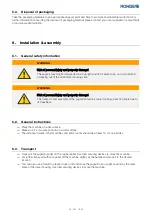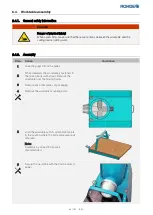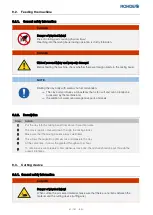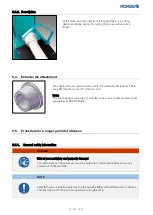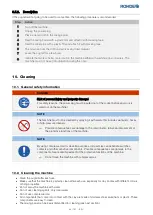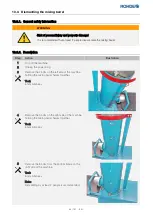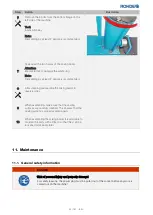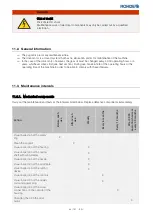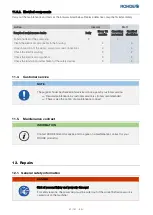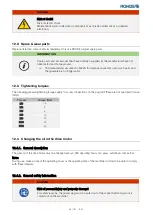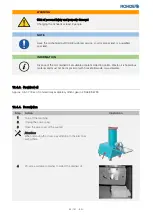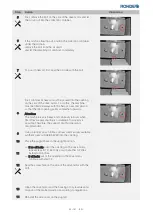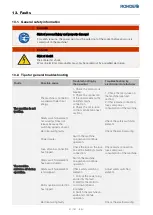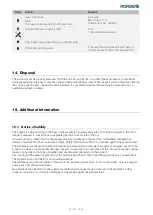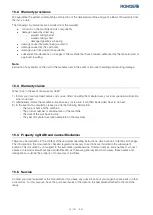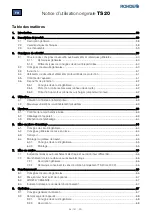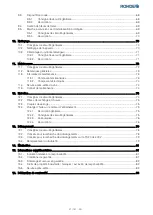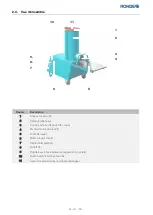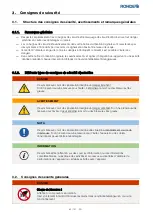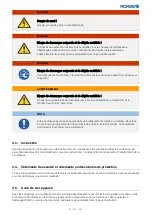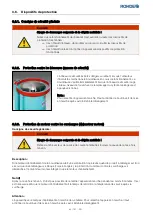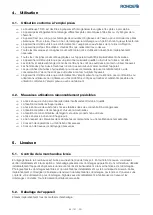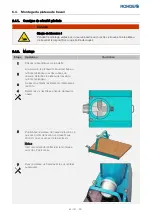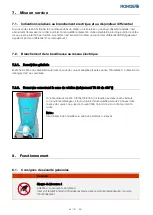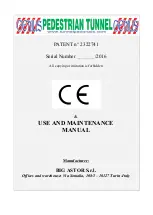
51 / 191 - EN -
13.
Faults
13.1.
General safety information
DANGER
Risk of personal injury and property damage!
For safety reasons, the power plug must be pulled out of the socket before any work is
carried out on the machine!
DANGER
Risk of death!
Risk of electric shock.
Work on electrical components may only be carried out by a qualified electrician.
13.2.
Tips for general troubleshooting
Faults
Possible cause
Troubleshooting by
the operator
Troubleshooting by
electrician/manufacturer
The machine is not
working.
The machine is not being
supplied with electrical
energy.
1. Check the main circuit
breaker.
2. Check the connection
of the power cable to the
building's mains
connection.
3. Check the micro-fuse
on the machine (see next
section).
1. Check the micro-fuse on
the machine (see next
section).
2. Check mains connection,
fuses and power
consumption of the machine.
Safety switching element
not working. Does not
release because the
switching signal is absent.
-
Check the safety switching
element.
Electrical wiring faulty.
-
Check the electrical wiring.
The machine
switches off during
operation.
Power failure.
Switch the machine
on again and continue
operation.
-
Fuse at mains connection
has tripped.
Check the fuse on the fuse
box at the building's mains
connection.
Check mains connection,
fuses and power
consumption of the machine.
Safety switching element
has been actuated.
Switch the machine
on again and continue
operation.
-
Safety switching element
is misaligned.
Check safety switching
element.
Adjust safety switching
element.
Motor overload protection
has tripped.
1. Pull out the power plug
and rectify the fault.
2. Wait for the motor to
cool down (at least
3 minutes).
3. Switch the machine on
again and continue
operation.
-
Electrical wiring faulty.
-
Check the electrical wiring.
Summary of Contents for TS 20
Page 194: ...20220224 01 ...

